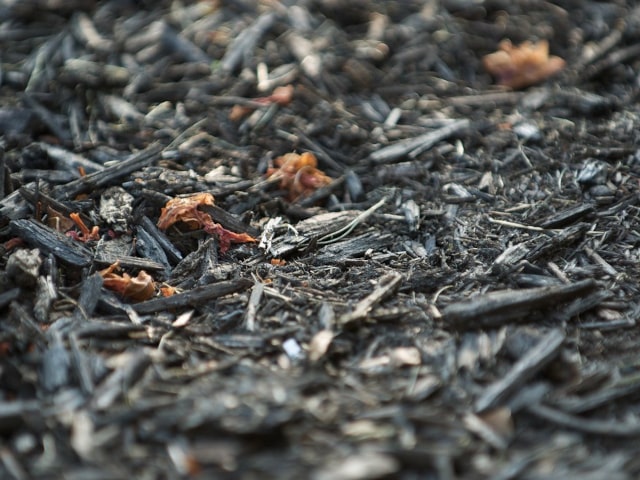
Leaf mulch offers numerous benefits to gardeners. Many people choose to prepare their mulch all by themselves. Mulching provides numerous benefits to gardeners and it can benefit plants in many different ways. This is why it's so beneficial. It is also a great way to get rid of all the unwanted leaves in the fall. Turn them into mulch and re-use them to benefit your plants.
Turning Leaves into Mulch
Many people choose to burn leaves in the fall. This is such a waste of money: you can actually use these leaves to make plenty of mulch. Mulch is excellent for plants so instead of buying it, you can make your own.
Mulch consists of decayed leaves so it is rich in organic matter. This can greatly benefit the soil and improve many of its characteristics. It will also benefit the plants growing in the soil covered in mulch.
Mulch is also excellent for improving the flavor of fruits and vegetables, as well as making flowers stronger and more beautiful. Plants have a much better health when mulch is applied. This can be particularly evident with evergreens and flowering shrubs but many other plants can benefit from mulching.
The Importance of Mulch
Mulch contains decayed leaves, yet leaves themselves don't seem too nutrient-heavy. The truth is that most of the nutrients found in the mulch are soil nutrients that get into leaves. The mechanism is very simple yet important to know so you can understand the importance of mulch.
Soils are leached by heavy rains. Many soil elements that are necessary for plant growth are soluble in water. It means that they are carried far down into the ground and out of reach of most plants.
Trees are different. They have long, strong roots that can reach deep down to get all these nutrients. They absorb great quantities of these nutrients as plant food. The nutrients then travel through the tree, all the way into the trunk where they serve for manufacturing leaf cells. This is how you get leaves full of nutrients from the soil.
In the fall, these leaves wither and fall down to the earth. There they decay and give the soil back all those valuable nutrients that the soil has lost through leaching. This is a well-established natural cycle that repeats every year. Places with plenty of trees have a lot of these nutrients in the ground so it is not surprising that these areas are very fertile. Think of forests and other wooded areas. These places are known for lush vegetation and nutrients from leaves are one of the most important reasons for this.
One a leaf has fallen to the ground, it oxidizes and slowly releases plant food it contains. This release is slow and makes for a constant flow throughout the year. This helps keeping the soil spongy, moist and porous.
It is clear how leaves are important for getting nutrients to the ground. These nutrients benefit the soil as well as the plants. This happens in nature but it is a process we can create by ourselves. Instead of burning leaves in the autumn, why not turn them into mulch?
Mulching Your Lawn
It is very frustrating to rake leaves in the fall, particularly because it seems like there is no end to this process. Instead of endless raking, collecting the leaves and building up the turf, why not mulch your lawn straight away? Instead of raking, simply apply these leaves to your lawn.
The best and easiest way to do this is to use a rotary mower. Set the blade of your mower as low as possible and go through your lawn as if you are simply cutting the grass. The mower will quickly shred the leaves and it will also blow them evenly over the lawn. The leaves will be applied evenly all throughout your lawn.
This is all you need to do. Pieces of leaves will get to the ground and start to decompose. In this process, they will release beneficial nutrients to the ground. This will turn the soil into a dark, rich loam. This will be highly beneficial to your grass the next year so you will have a lush and green lawn.
If you don't have so many leaves to spare, gather up a bunch of leaves with a leaf blower and then simply scatter bushels of leaves on your lawn. It is best to put them in areas where there were no leaves previously. After you have done this, you can go along with a mower to shred them up.
On the other hand, if you have many trees on your lawn and therefore plenty of leaves, you don't have to use them all for the lawn. You can take some of it to create mulch for the rest of the garden. Remember: some shredded leaves are beneficial for your lawn but too many of them can choke out the grass. Keep this in mind when mulching your lawn.
How to Mulch Your Plants
Leaves are excellent to be used as mulch for your garden plants. Some people even use mulch for their potted plants in containers. If you have leaves that are not used on your lawn make sure to turn them into mulch for your plants.
You can use these leaves as a winter mulch for many garden plants. Evergreens, roses, shrubs and perennials are ideal for mulching this way. In addition to nutrients from decaying leaves, mulch provides protection from frost. As the leaves oxidize slowly, they release heat which prevents the plant from freezing. This is very important in colder areas. You should use mulch to protect your garden plants from cold if you live in one of these colder areas.
On the other hand, this type of mulch is beneficial even in the warmer areas. The leaves keep the soil around the plant roots cool, moist and porous. This is very beneficial for your plants so you should use mulch even if you live if warmer areas.
One word of caution for those who wish to mulch around plants such as peonies. It is important to place 2 inches of coarse straw or grass stalks over the crown of each plant. After this, apply about 4 inches of leaves as a top blanket. Coarse straw or grass stalks are important for ensuring air circulation so your plants can breathe. Don't forget to apply this before you place mulch around your plants.
What to do in the spring? It is usually not necessary to remove the leaf mulch. You can simply cover it with peat moss or grass clippings. Mulch is great for acid-loving plants such as blueberries and evergreens so there is a benefit for leaving it in the spring.
Mulch is great for adding necessary nutrients to the soil, which is crucial for plant growth. In addition to this, mulch will help retain moisture, build up loam and prevent the soil from packing hard in hot and dry weather. All these advantages are important so it makes sense to use mulch on your garden plants.
Photo credit: Matt Witmer
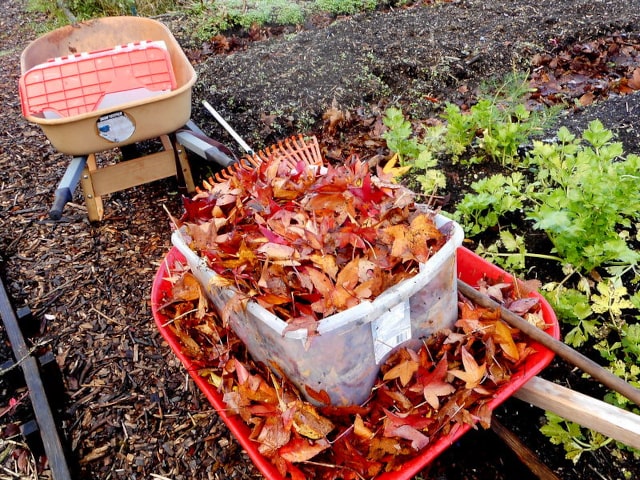
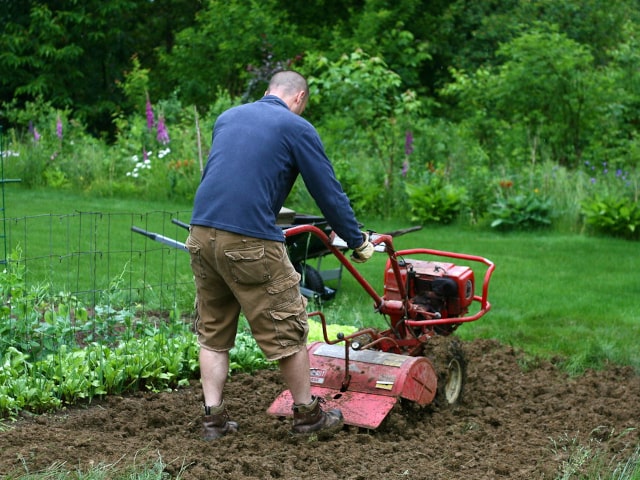
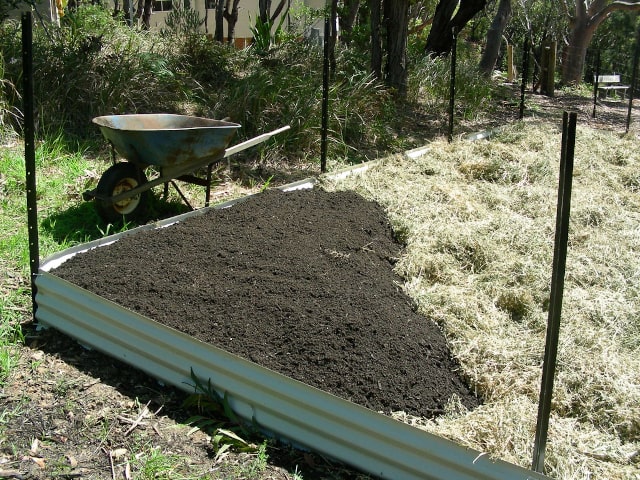
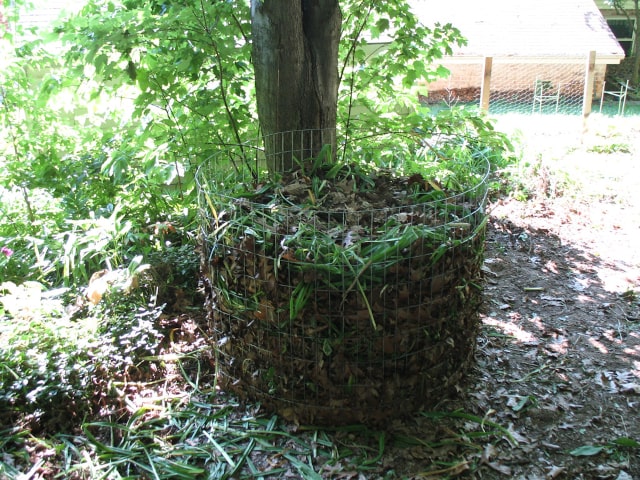
0 Comments